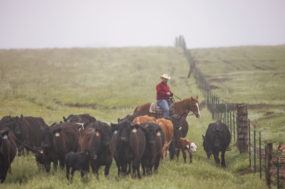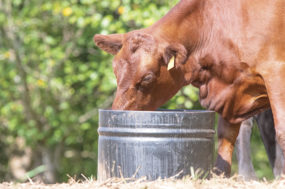It’s an exciting time when the next generation determines that they are going to pursue a career on the farm. When a young professional returns to the farm they grew up on, there is a tendency to assume the transition from a part-time role to a full-time job will go smoothly with little or no thought or planning. However, for this transition to be successful, it is crucial for farm leaders to lay down clear expectations, provide detailed job descriptions, offer competitive wages, establish effective feedback mechanisms and craft personal development plans.
Clarify expectations
The foundation of a successful transition lies in clear communication and understanding of expectations. Before the younger generation returns to the farm, it is essential for both parties to have open and honest conversations about their respective expectations.
Farmowners must communicate the values and principles that guide their farm, ensuring that the returning individuals are aligned with these. On the other hand, the next generation should express their aspirations and expectations, allowing for a comprehensive understanding of what each party brings to the table. This mutual clarity sets the stage for a harmonious and productive working relationship.
Provide a job description
Once expectations are clarified, the next step is to provide a detailed job description. Clearly outlining the roles and responsibilities of each individual on the farm not only helps in avoiding misunderstandings but also allows for a more focused and efficient work environment.
Moreover, it is beneficial to discuss the farm’s organizational chart and who the individual will report to. This can reduce confusion and eliminate the opportunity for entitlement to creep in. The organizational chart can also aid in discussing expectations around working with other family members who may be more experienced, like an older sibling. This can help reduce competition or the expectation that a less experienced family member will get the same pay and benefits as a more experienced family member.
If management responsibilities are part of their job description, it is important to discuss the people they will work with, expectations regarding attendance at meetings and other management responsibilities. This holistic approach can foster a sense of purpose and commitment among the younger generation, supporting a smooth transition into their role.
Offer a competitive wage
As talented and reliable labor becomes more difficult to recruit and retain, recognizing the value of the next generation’s contribution to the farm is paramount. Offering a competitive wage not only demonstrates appreciation for their talent, hard work and commitment but also ensures financial sustainability for the individuals returning to the farm. A fair and transparent compensation structure can motivate and incentivize the next generation of farm leaders, encouraging them to invest their time and energy into the farm’s success.
Farmowners should conduct thorough research on prevailing wage rates in the agricultural sector, taking into account factors such as local market conditions, the size of the farm and the specific skills required for the job. If non-cash benefits such as a vehicle, cellphone and housing will be offered, it is helpful to assign a value to those benefits and present them as part of a total compensation package. Additionally, providing benefits such as health insurance, retirement plans or profit-sharing can further enhance the attractiveness of the compensation package.
Develop a schedule for feedback
Effective communication is an ongoing process, and feedback plays a crucial role in fostering continuous improvement and the opportunity to address issues or concerns in a timely manner. Farmowners should establish a regular schedule for feedback sessions, creating a platform for both parties to discuss progress, address concerns and identify areas for growth. These sessions should be more frequent in the first year to ensure a smooth onboarding process. Dedication to these sessions is important, especially if things are going well. Constructive feedback should not only focus on areas that need improvement but also highlight achievements. Positive reinforcement can boost morale and motivation, creating a positive working environment on the farm. Additionally, these feedback sessions provide an opportunity to reassess goals and make any necessary adjustments to the personal development plan.
Personal development plans
A well-crafted personal development plan is an invaluable tool for nurturing the growth of the next generation of leaders on the farm. The plan should outline specific goals, both short term and long term, aligned with the individual’s aspirations and the farm’s overall vision. It can encompass skill development, leadership training and exposure to different facets of agriculture.
Farmowners should collaborate with the returning individuals to identify areas for improvement and provide the necessary resources, training and mentorship to support their development. This not only enhances the skills and knowledge of the younger generation but also contributes to the overall success and sustainability of the farm.
The return of the next generation to the farm can bring fresh perspectives, energy and an appreciation and understanding of new innovations in agriculture. To ensure a successful transition, farmowners must prioritize clear communication, detailed job descriptions, competitive wages, regular feedback and the ability to clearly see how their career will progress through personal development plans. By fostering a supportive and collaborative working environment, farm families will not only secure the dedication of the next generation but also pave the way for a thriving and sustainable future for the operation.









